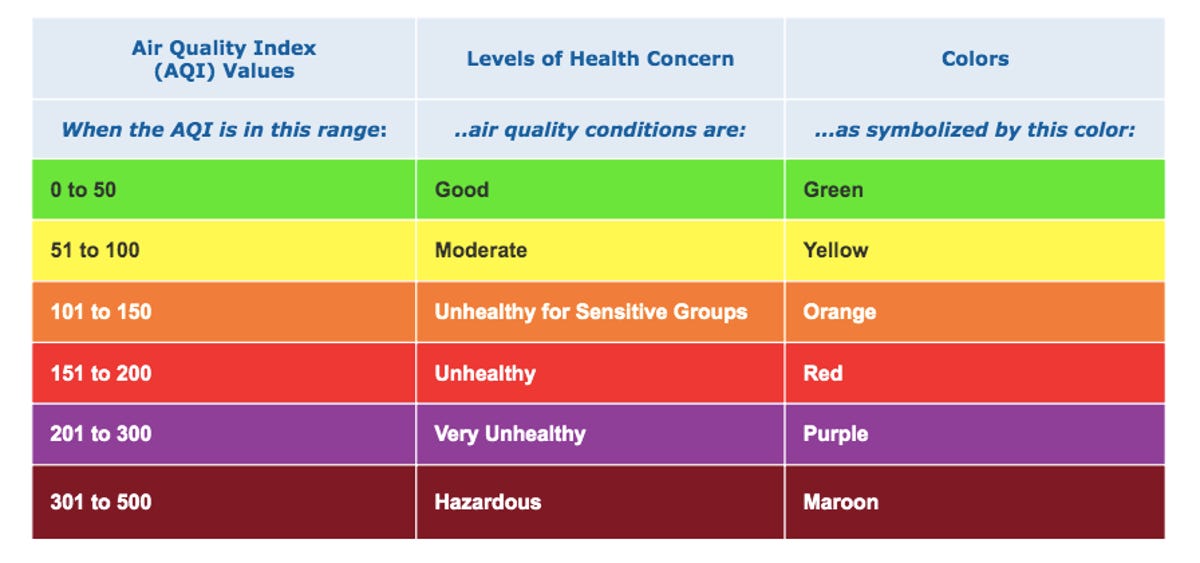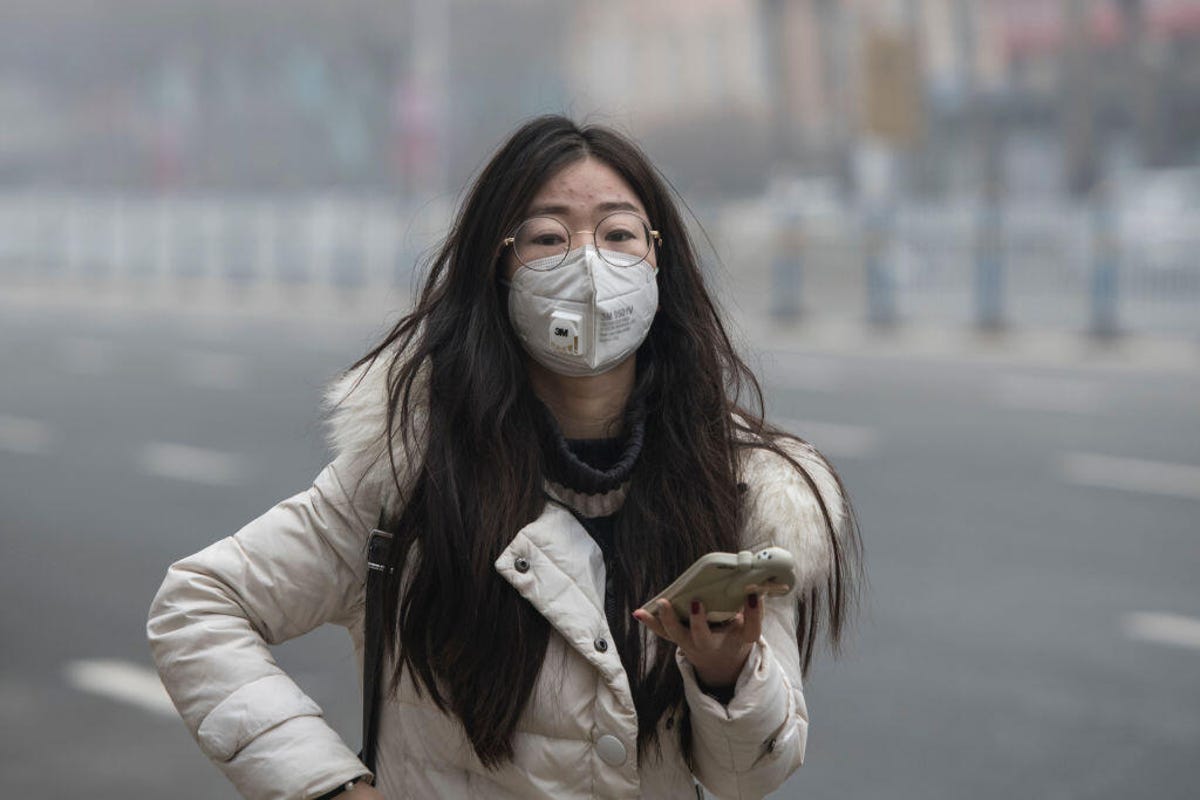As wildfires blaze across areas such as Southern California, Oregon and Nevada amidst a scorching heat wave, thousands are evacuating while firefighters work to extinguish the flames. Residents in and around these areas are now dealing with poor air quality, which can be especially concerning for older individuals, young children and those with respiratory conditions.
Will adding an air purifier to your home help during times like these? Should you completely avoid outdoor activities when air quality is bad?
Fortunately, a resource called the Air Quality Index was created by the US Environmental Protection Agency in 1999 to help monitor air quality so you can understand the impact it may have on your health.
What is the AQI?
From talking fridges to iPhones, our experts are here to help make the world a little less complicated.
The AQI reports on how clean or polluted the air in your area is and what effects breathing the outdoor air may have on your health. The AQI forecast is available in more than 500 US cities, and you can view an interactive map that rates the air quality across the US and Canada. The index is on a scale of 0 to 500 (0 being clean air and 500 being heavy pollution). Outside the US, you can check the World Air Quality Index for air pollution ratings across the globe.
The AQI takes into account five of the major air pollutants regulated under the Clean Air Act. These pollutants are ground-level ozone, particle pollution, carbon monoxide, sulfur dioxide and nitrogen dioxide.

What each AQI category means:
- Good (Green): 0-50 AQI means there is little or no health risk associated with air quality.
- Moderate (Yellow): 51-100 AQI designates acceptable air quality, but depending on the type of contaminants in the air, some people who are sensitive to pollution or experience breathing issues may experience adverse effects.
- Unhealthy for Sensitive Groups (Orange): 101-150 means there is a health risk for children, older adults and people with heart disease and lung disease. The general healthy population isn't likely to experience health risks.
- Unhealthy (Red): 151-200 AQI is considered unsafe, and anyone could experience negative health effects from air pollution.
- Very Unhealthy (Purple): 201-300 AQI is a serious health risk level for everyone, and you may see a health alert on your phone or weather app.
- Hazardous (Maroon): 300 or greater AQI is considered hazardous, and an emergency or evacuation warning is likely to be issued.
From talking fridges to iPhones, our experts are here to help make the world a little less complicated.
What to do when there is poor air quality

If the air quality in your area is compromised, there are several things you can do to protect yourself. Special attention should be paid to those who have compromised respiratory, lung or heart health, as well as children and older adults who are generally more vulnerable.
If the air quality is unhealthy (101-150), the AQI website recommends that people who are sensitive to pollution (i.e., people with lung disease, asthma, children, older adults and outdoor workers) reduce or limit the time they spend working or doing activities outside. If the air quality is in a more moderate range (51-100), you can still protect yourself by reducing time spent outdoors if you're concerned that you're sensitive to pollution levels.
If the air quality falls in the unhealthy or red range (151-200), the AQI recommends that people with compromised health avoid prolonged outdoor work or activities. Everyone else who is not health-compromised should limit the time they spend outdoors.
If the air quality is in the very unhealthy or hazardous range, chances are an emergency alert will be issued by media outlets, weather apps and more. If this is the case, everyone should avoid going outside and being exposed to the air as much as possible. People with compromised health should not go outside at all to protect themselves.
Should you wear a face mask when air quality is poor?
If you are concerned about the air quality around you, wearing a face mask anytime you are exposed to the compromised air can help. Ensure your mask is rated as N95 and fits snugly over your nose and mouth. Surgical masks, medical masks and bandanas tied over your nose and mouth are not designed to filter out harmful air pollutants and will not protect you.
An air purifier can also help reduce smoke and pollution. These are the best air purifiers to buy if you're concerned about air quality in and around your home.
The information contained in this article is for educational and informational purposes only and is not intended as health or medical advice. Always consult a physician or other qualified health provider regarding any questions you may have about a medical condition or health objectives.
From talking fridges to iPhones, our experts are here to help make the world a little less complicated.